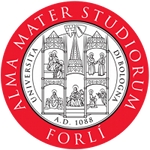
tetraTeTra
Tecnologie per la Traduzione: Ritorno all'Innovazione
Arantza Del Pozo — Exploiting Speech Recognition and Machine Translation for Multilingual Automatic Subtitling
Subtitling is the most widely used method to make audiovisual content accessible for the deaf and hard of hearing and across languages. The increasing use of multimedia and the accessibility policies promoting the subtitling of broadcast contents at European and national level have seen increased subtitling demands in recent years. As a result, the subtitling industry is looking into ways to make the subtitling process more productive. Speech recognition and machine translation are proving to be useful techniques, capable of increasing both intralingual and interlingual subtitling efficiency through post-editing.
This talk will give an overview of the work carried out by Vicomtech-IK4 in recent years exploiting both speech recognition and machine translation technologies for multilingual automatic subtitling, including the main results of the SUMAT, SAVAS and Hbb4all European projects.
Bionote
Arantza Del Pozo is the head of the Human Speech and Language Technologies department at Vicomtech-IK4, an applied research centre specialized in the fields of multimedia, computer graphics and interaction.
She graduated from the Electronics and Telecommunications Engineering Department at the University of Deusto, Bilbao. After graduation, she went to Cambridge University to do an MPhil in Computer, Speech, Text and Internet Technologies and then continued on to complete her PhD in voice conversion.
Since May 2008, she has been working as a principal researcher at Vicomtech-IK4, where she leads the Human Speech and Language Technologies team and manages speech and language related R&D projects. Recently, she coordinated SAVAS and SUMAT, two EU projects seeking to make the subtitling and subtitle translation processes more efficient through the introduction of speech recognition and machine translation technology. She is currently involved in the Hbb4all EU project, which addresses media accessibility for all citizens in the connected TV environment.
|
Aggiornato 20/07/2016
|